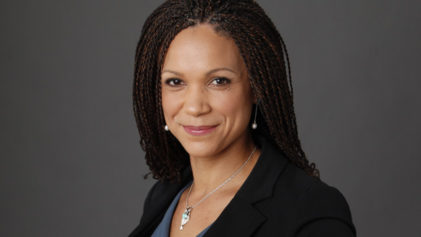A college education does not make anyone immune to being a racist. The stereotype of the dumb, uneducated white person who spews racist invective against Black people and others allows society to lose sight of the full extent of racial discrimination and harassment in America. It is a matter that came to light in a recent incident in a Dollar Tree store in Lawrenceville, Georgia, in which a woman went into a racist rage against a Black store clerk, calling the woman a “Black b-tch” and a “Black whore.” The woman, who appears to be Indian, also called a Black customer a “Black slave,” then claimed victimhood and argued she could not be a racist because she is educated and a teacher.
“So, I’ve taught at Black schools, I’ve taught at Latino schools,” she said to a WSB-TV. “Individuals who go to be an educator are not racist.”
While there are stereotypes abound regarding Black people and other victims of racism, there are stereotypes about racists themselves, who they are, and who they are not. The results of a study in Journal of Experimental Psychology: General seem to rebut any notion that intelligent people cannot be racist, and that only the unintelligent are capable of stereotyping others. The study suggests that those with brains are more likely to stereotype groups of people.
As The Atlantic reported, New York University researchers gave 271 participants in the study a series of exercises. First, they showed the participants a number of cartoon alien facial features, of which each was assigned a friendly or unfriendly behavior. Most of the cartoon faces were assigned behaviors at random, with the exception of 80 percent of blue aliens that were paired with nice behavior, and 80 percent of yellow aliens that were assigned negative behavior. The participants were then presented with a lineup of aliens and were asked to indicate the behavior associated with each face. Subsequently, the subjects took a human intelligence test known as Raven’s Advanced Progressive Matrices. The “smarter” people who scored higher on the test more often assigned rude behavior to the wrong blue alien, friendly behavior to the wrong yellow alien, and were less likely to attribute the behavior to an alien of a different color.
The second round of exercises, which measured implicit bias, involved computer-generated human faces. Not unlike the first round of exercises, 80 percent of men with narrow noses were paired with nice behavior while 80 percent of men with wide noses were paired with rudeness. The results were similar to the alien exercise, with respondents indicated they trusted the men with the narrow-bridged noses over those with wider noses. While the study suggested that more intelligent people more readily believe stereotypes, they are also quick to change course and reject these stereotypes when faced with new information.
Other studies point in the same direction, For example, sociological research found that intelligent people are more likely to identify as liberal and be aware of discrimination. However, when it comes to the issue of race, smarter people are no more likely to support specific policies to remedy racial inequality.
Although 95 percent of subjects who scored higher on the intelligence test supported Black and white children attending the same schools, only 22 percent support school busing. Research shows that even for intelligent liberal and progressive whites, there is a lack of consistency when it comes to matters of race. Often, their faith in the role of government to solve problems may not always apply to racial issues. A concrete example of this phenomenon is progressive presidential candidate Bernie Sanders’ opposition to reparations for slavery — talking the talk of progressive ideology, but not backing it up with a specific race-based policy prescription. The sometimes disappointing racial attitudes of so-called white allies has created suspicion among Black people. Martin Luther King Jr. once said that he was “gravely disappointed with the white moderate,” and concluded that “the Negro’s great stumbling block in his stride toward freedom is not the White Citizen’s Counciler or the Ku Klux Klanner, but the white moderate, who is more devoted to ‘order’ than to justice … who lives by a mythical concept of time and who constantly advises the Negro to wait for a ‘more convenient season.’ ”
“The white liberal differs from the white conservative only in one way: the liberal is more deceitful than the conservative,” said Malcolm X. “The liberal is more hypocritical than the conservative. Both want power, but the white liberal is the one who has perfected the art of posing as the Negro’s friend and benefactor; and by winning the friendship, allegiance, and support of the Negro, the white liberal is able to use the Negro as a pawn or tool in this political ‘football game’ that is constantly raging between the white liberals and white conservatives.”
“High-ability whites are less likely to report prejudiced attitudes and more likely to say they support racial integration in principle,” said Geoffrey Wodtke, a doctoral candidate in sociology at the University of Michigan who conducted a study concluding that intelligence is no remedy for racism. “But they are no more likely than lower-ability whites to support open housing laws and are less likely to support school busing and affirmative action programs.”
Another study from the General Social Survey found that people who scored lower on a vocabulary test were more likely to believe Black people are “lazy” or “unintelligent.” Yet, even as more intelligent participants disagreed, they maintained comparably racist views on actual policies. Smarter people, it turns out, were less overtly racist, clever enough to hide their racism. Still, there are different gradations of racial bias among people.
The environmental conditions for racism are all around us, with the culture encouraging implicit bias. This is why the expectation that racists will die out is a futile proposition, as white millennials tend to be more progressive on issues such as marriage equality or climate change, but some are not on matters of race. For example, a Fusion Issues Poll found that only 21 percent of white young people support government reparations for slavery, and a mere 44 percent favor a federal apology for slavery. According to a 2012 poll, nearly 60 percent of white millennials believed discrimination impacts whites as much as it does people of color, and less than 40 percent believe white people have more opportunities than members of racial minority groups.
Other similar surveys on white racial attitudes also suggest white people live in a bubble in which they do not interact with Black people. The Charlottesville Tiki torch rally with well-dressed and young professional white supremacists is a testament that some white millennials are indeed racist. Moreover, neo-Confederate expert Ed Sebesta believes that over 80 percent of white Americans are banal, or everyday white nationalists, in a society where there are so many familiar, everyday examples of said nationalism in society that we do not acknowledge them. “Our history textbooks, our monuments, etc., create at a non-conscious level a banal white nationalist public. They may sincerely believe they are not racists, but at an unconscious level they imagine this to be a white nation. They may want some type of civil rights, but they are just wanting as good white people a nice guest house for non-whites,” Sebesta told Atlanta Black Star.
Ultimately, polls and studies that measure education levels and racial attitudes often do not discuss the role of institutional racism. Rather, many white people perceive racism as matters of individual failings rather than systems, policies and practices of racial oppression and white supremacy. Martin Luther King referred to white supremacy as the drum major instinct: “A need that some people have to feel superior. A need that some people have to feel that they are first, and to feel that their white skin ordained them to be first.”


